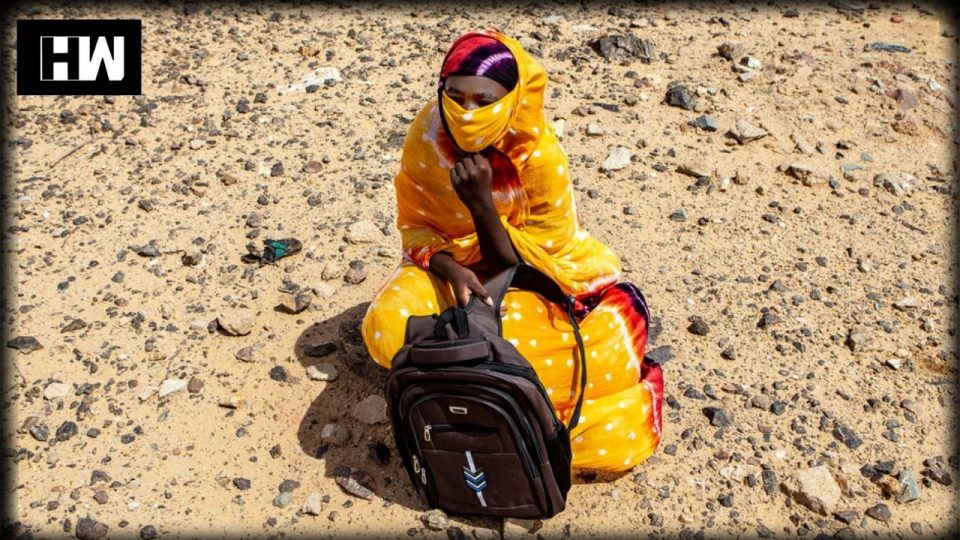The deputy UN chief on Thursday emphasized the “vital importance” of peace and security in Africa, thanking ambassadors in the Security Council for helping the UN shine a spotlight on the issue, and how all Member States can work with the African Union and other regional and sub-regional groups, to make lives more secure across the continent.
Speaking on behalf of the Secretary-General, Amina Mohammed drew the attention of the Council to “a number of worrying trends” Africans face today.
The Deputy Secretary-General highlighted the socio-economic burdens of COVID-19, saying it has not only impacted the implementation of the Sustainable Development Goals (SDGs) across Africa, but also exacerbated poverty, inequalities and all the drivers of conflict.
“It has undercut the provision of public services, disrupted supply chains, slowed economic activity, and hampered peace agreements and conflict resolution”, she said.
And from a military coup d’état in Sudan earlier this week to continuing conflict in northern Ethiopia’s Tigray region, and persistent threats of terrorism and violent extremism, she observed “a rise in seizures of power by force” and “a proliferation of militias” across Africa.
Broadened cooperation
She said that despite these “worrisome developments”, Africans continue to work relentlessly for a prosperous, sustainable and peaceful continent, based on the universal principles of human rights, as witnessed through growing cooperation between the UN, AU and sub-regional organizations on sustainable development, elections and peace processes.
Ms. Mohammed cited the example of Libya, where the UN, AU, League of Arab States, and European Union, are working to support the ceasefire agreement and prepare for upcoming elections.
“We’re also working closely with the African Union and sub-regional organizations, to support the countries of the Sahel and beyond, including to address the return of mercenaries and foreign fighters to their countries of origin”, she said.
Mission support
UN special political missions, peacekeeping missions, and country teams in Africa continue to provide comprehensive support to other peace initiatives and political transitions – including in Cameroon, Mali, Somalia and South Sudan.
And once ongoing discussions on the division of responsibilities between the AU and Regional Economic Communities/Mechanisms are concluded, Ms. Mohammed “looks forward to continue harnessing the opportunities and strengths of each organization and build effective conflict prevention and resolution strategies as the COVID-19 pandemic and climate change continues to affect the continent, particularly women and youth”.
‘Reembrace global solidarity’
The UN’s strong partnership with the AU and sub-regional organizations must be supported by all Member States.
Citing Our Common Agenda, she underlined the need to “reembrace global solidarity” to find new ways to work together for the common good of all people in every country.
Pointing to three urgent actions, she began with prioritizing the COVID-19 response in Africa through “accelerated vaccine distribution, strengthening national health systems and much needed investments in preparedness”.
The deputy UN chief reaffirmed the UN’s “focus on sustainable development”, with the 2030 Agenda for Sustainable Development and the AU’s Agenda 2063 “at the heart of our common efforts”.
“Ultimately, sustainable and inclusive development is our best chance to address the root causes of conflict and achieve a future of peace and prosperity for all”, she said.
Sustainable and inclusive development is our best chance to address the root causes of conflict — UN deputy chief
‘Spare no effort’
To “continue securing adequate, predictable, and sustainable resources that will bring to life development, peace and security mandates across Africa”, was the deputy UN chief’s final point.
In this regard, she highlighted the centrality of coherent action across peace, development and humanitarian approaches, throughout the continent, “in establishing a common vision, in ensuring complementarity and safeguarding of investments”.
Under the guidance of Member States, Ms. Mohammed attested that the UN would “spare no effort to make our partnerships more effective to help all Africans build a more inclusive, prosperous, integrated, and peaceful continent”.
Africa asks
On behalf of the Economic Community of West African States (ECOWAS), the President of Ghana, Nana Addo Dankwa Akufo-Addo, encouraged more effective African engagement with UN preventive diplomacy capacities while calling for higher levels of solidarity and more understanding of current threats.
He also highlighted the need for more women and youth at all stages of conflict-related decision-making and management, including the silencing the guns initiative, and called for improved responses to security challenges, such as threats posed by terrorists and opposition activity which undermines democratically-elected governments.
Toxic narratives
With Kenya holding the presidency of Security Council, the country’s President Uhuru Kenyatta warned that political differences and toxic narratives, which are proliferating on the continent, were being “weaponized” – even in the most stable democracies.
He also explained that UN and AU missions are dealing with increasingly sophisticated terror threats as multi-lateral responses are falling short in many countries, including on climate and vaccine access, urging “a new conversation” over Africa’s security architecture.
Fiscal stability
The AU High Representative for Financing and the African Union Peace Fund, Donald Kaberuka said that to date, UN-AU cooperation, including on security, has been largely ad hoc and pushed for the Organization to reassess the importance of supporting African peace operations through assessed contributions.
He called for more predictable funding to address peace and security emergencies as well longer-term stability efforts.
As an independent media platform, we do not take advertisements from governments and corporate houses. It is you, our readers, who have supported us on our journey to do honest and unbiased journalism. Please contribute, so that we can continue to do the same in future.

